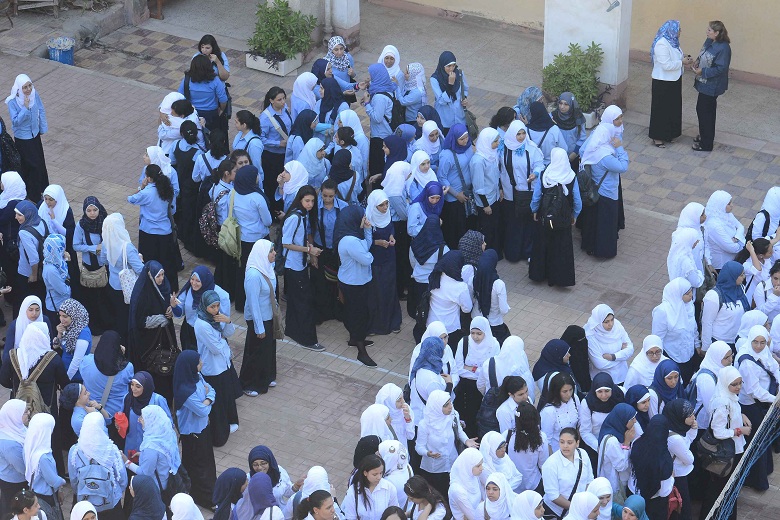More than 61 cases of sexual harassment and physical assault occurring inside educational institutions were reported in 2014, based on the findings of the annual report on the education sector prepared by the Administrative Prosecution.
The Administrative Prosecution published its annual report on the education sector Monday, documenting various forms of violations and deficiencies, as part of its constitutional duty to implement administrative reform and fight corruption, state media reported.
Prosecution investigations have revealed that sexual harassment crimes were carried out by teachers against female students in the primary and preparatory stages, raising alarm regarding the severity of the situation.
“Sexual harassment is a crime that violates all ethics, morals and religions; but it is even a graver crime when it is committed by those who are entrusted with the responsibility of protecting students,” stated the report.
It is important to note that the number of cases mentioned in the report is “much less” than the actual number of sexual harassment cases, because of the reluctance to report such crimes due to their “special nature”.
As a civil society organisation working to combat the acceptance of sexual harassment in Egyptian society, HarassMap faces difficulty accessing public and private schools in order to carry out its awareness campaigns.
Hadeer Mamdouh, Social Media Manager at the HarassMap Initiative, stated that they face difficulty in obtaining authorisation to access the schools, with the reasons for rejection usually being “security concerns” or lack of time for “leisure activities”.
Mamdouh added that during the instances when they were able to conduct awareness campaigns, there were usually certain regulations imposed on the content.
“Words like ‘sexual harassment’ or ‘undressing’ could not be used, but our mission is only to raise the children’s awareness of the phenomenon and how to deal with it,” says Mamdouh.
“There is not enough attention given to the cause and there aren’t any curricula in place to inform students of sexual harassment or assaults in general,” states Mamdouh. “NGOs need to be granted more freedom of access to these institutions in order to raise awareness about the issue.”
The report also indicated a notable increase in violations regarding the maintenance of public funds, particularly alluding to the recurrent thefts of public schools. The violations raise doubts concerning those responsible for securing schools, with the report also attributing the probability of their occurrence to current security conditions.
Another reported violation is “political discussions, attempting to influence students politically and encouraging disrespect of the law inside school premises”. These violations generally occur through “material or moral coercion” and are viewed as a “new phenomenon” that needs to be “entirely eliminated”.
Other widespread violations include leaking examination papers, manipulating answer papers, receiving donations or fees against set rules, and irregularities related to authoring textbooks and curricula.
The report recounts filed cases related to violations in the education sector in 2014; however those incidents have not necessarily occurred during the year under study alone, as there is a time gap between the dates the violations were committed, their detection and the time they were legally addressed. Thus, some of the violations documented have occurred prior to 2014.
